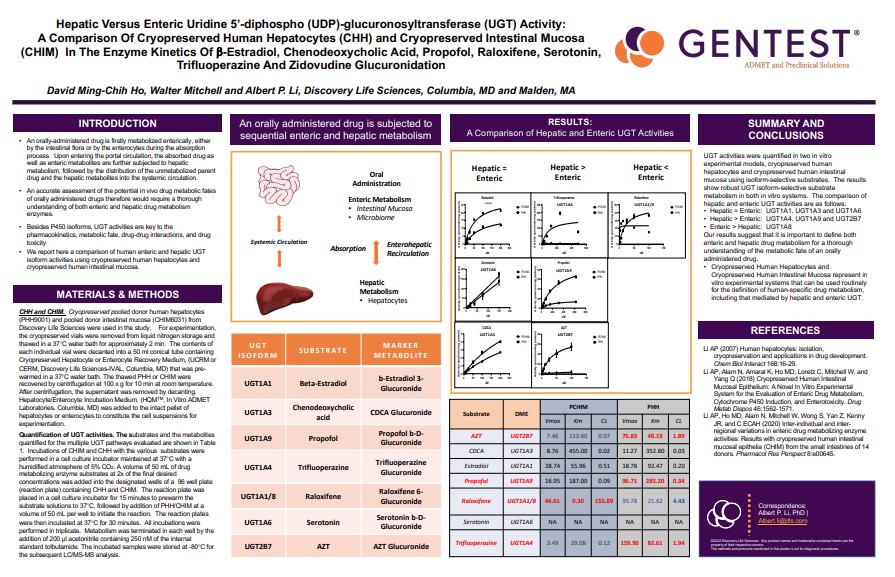- An orally-administered drug is firstly metabolized enterically, either by the intestinal flora or by the enterocytes during the absorption process. Upon entering the portal circulation, the absorbed drug as well as enteric metabolites are further subjected to hepatic metabolism, followed by the distribution of the unmetabolized parent drug and the hepatic metabolites into the systemic circulation.
- An accurate assessment of the potential in vivo drug metabolic fates of orally administered drugs therefore would require a thorough understanding of both enteric and hepatic drug metabolism enzymes.
- Besides P450 isoforms, UGT activities are key to the pharmacokinetics, metabolic fate, drug-drug interactions, and drug toxicity
- We report here a comparison of human enteric and hepatic UGT isoform activities using cryopreserved human hepatocytes and cryopreserved human intestinal mucosa.

